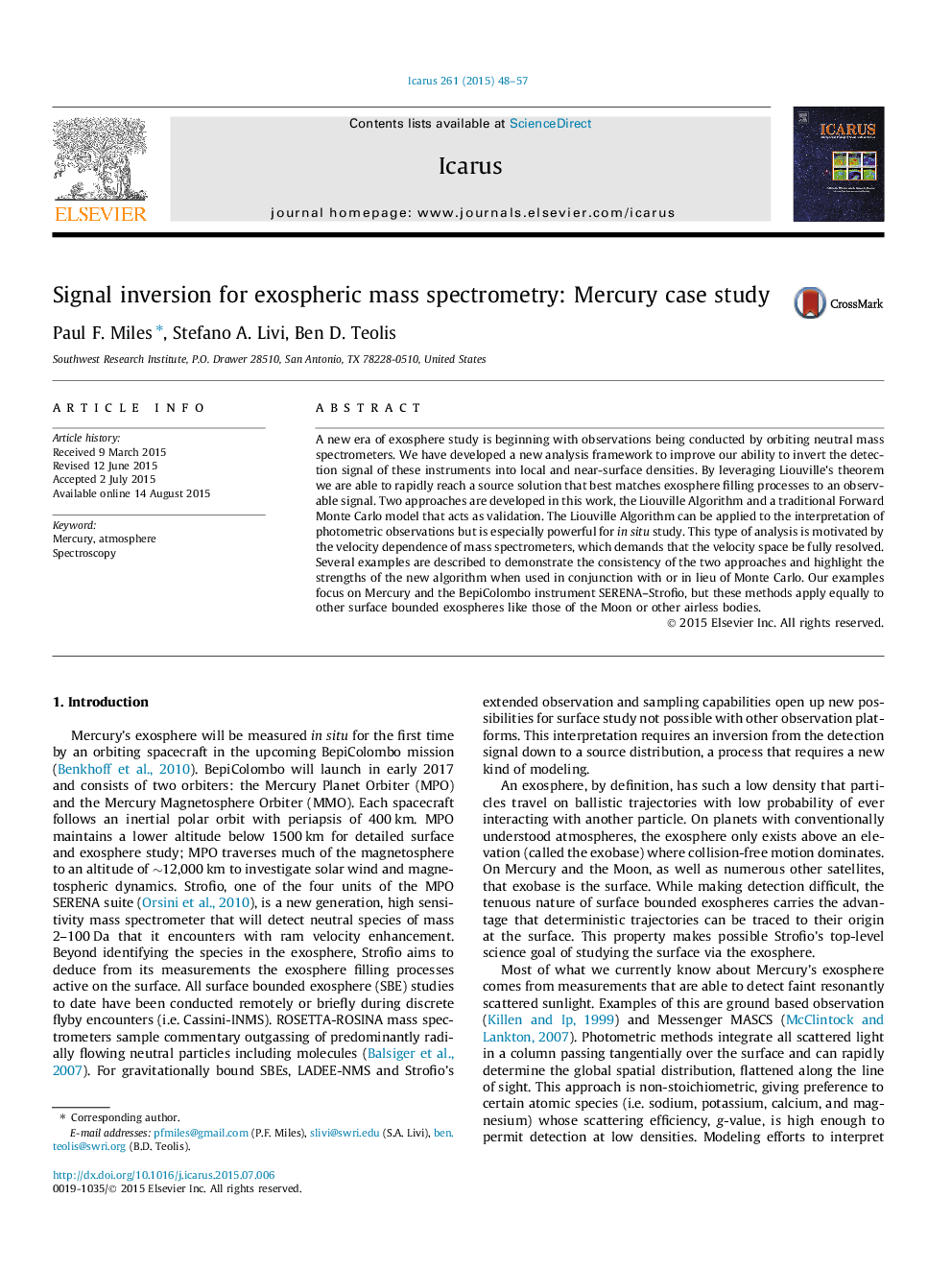| Article ID | Journal | Published Year | Pages | File Type |
|---|---|---|---|---|
| 8135955 | Icarus | 2015 | 10 Pages |
Abstract
A new era of exosphere study is beginning with observations being conducted by orbiting neutral mass spectrometers. We have developed a new analysis framework to improve our ability to invert the detection signal of these instruments into local and near-surface densities. By leveraging Liouville's theorem we are able to rapidly reach a source solution that best matches exosphere filling processes to an observable signal. Two approaches are developed in this work, the Liouville Algorithm and a traditional Forward Monte Carlo model that acts as validation. The Liouville Algorithm can be applied to the interpretation of photometric observations but is especially powerful for inâ£situ study. This type of analysis is motivated by the velocity dependence of mass spectrometers, which demands that the velocity space be fully resolved. Several examples are described to demonstrate the consistency of the two approaches and highlight the strengths of the new algorithm when used in conjunction with or in lieu of Monte Carlo. Our examples focus on Mercury and the BepiColombo instrument SERENA-Strofio, but these methods apply equally to other surface bounded exospheres like those of the Moon or other airless bodies.
Keywords
Related Topics
Physical Sciences and Engineering
Earth and Planetary Sciences
Space and Planetary Science
Authors
Paul F. Miles, Stefano A. Livi, Ben D. Teolis,
